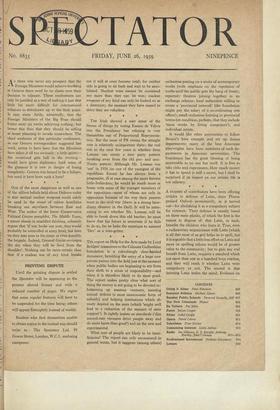A NUMBER of contributors have been offering articles in defence
of Latin, since Pharos praised Oxford—prematurely, as it turned out—for abolishing it as a compulsory subject for entrance. Their defence is usually based on three main planks, of which the first is the easiest to dispose of: that Latin, as such, benefits the children who learn it. True, even a rudimentary acquaintance with Latin (which is all that most of us get) helps us to spell, but it is arguable that a little less effort on Latin and more on spelling reform would be of greater value to the community; but to gain any real benefit from Latin, requires a standard which not more than one in a hundred boys reaches, and they will reach it whether Latin were compulsory or not. The second is that learning Latin trains the mind. Evidence on
how the mind is best trained is still too rudimentary to be relied upon, but we should have thought that most of the evidence is now pointing to the opposite conclusion: that forcing a child to learn a subject, any subject, which is neither interesting to him nor relevant to his problems, so fhr from training the mind actually hampers such training, by setting up a resistance in the learner—often mistaken for stupidity.
The third contention that if Latin gradually disappears from the curriculum, the trend towards specialisation, already excessive, will be encouraged. Regrettable though this trend is, the way to fight it is not to try to brainwash would-be scientists and historians into achiev- ing a pass mark in a language they have no
interest in, but to do as, say Keele does, and encourage every student to choose among a wider field of subjects one or more which they would like to do alongside their speciality.



















 Previous page
Previous page